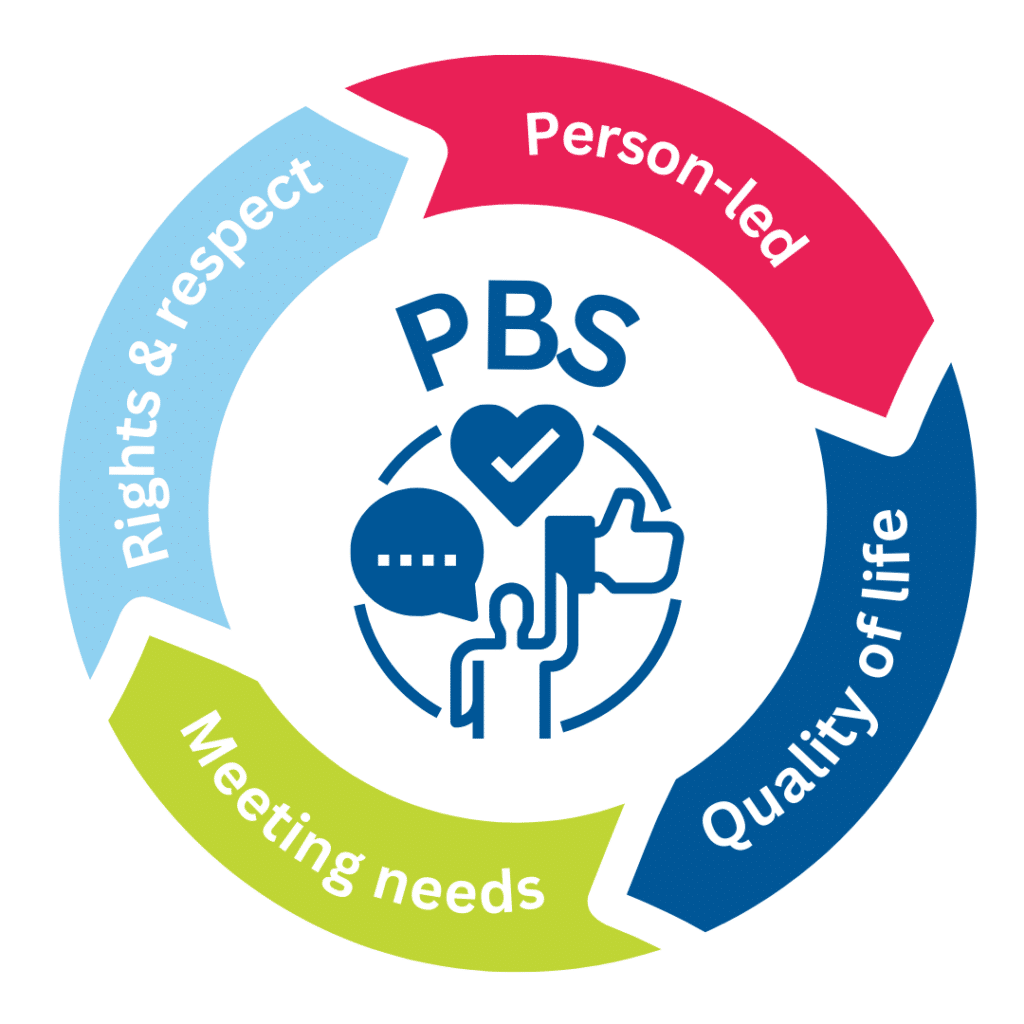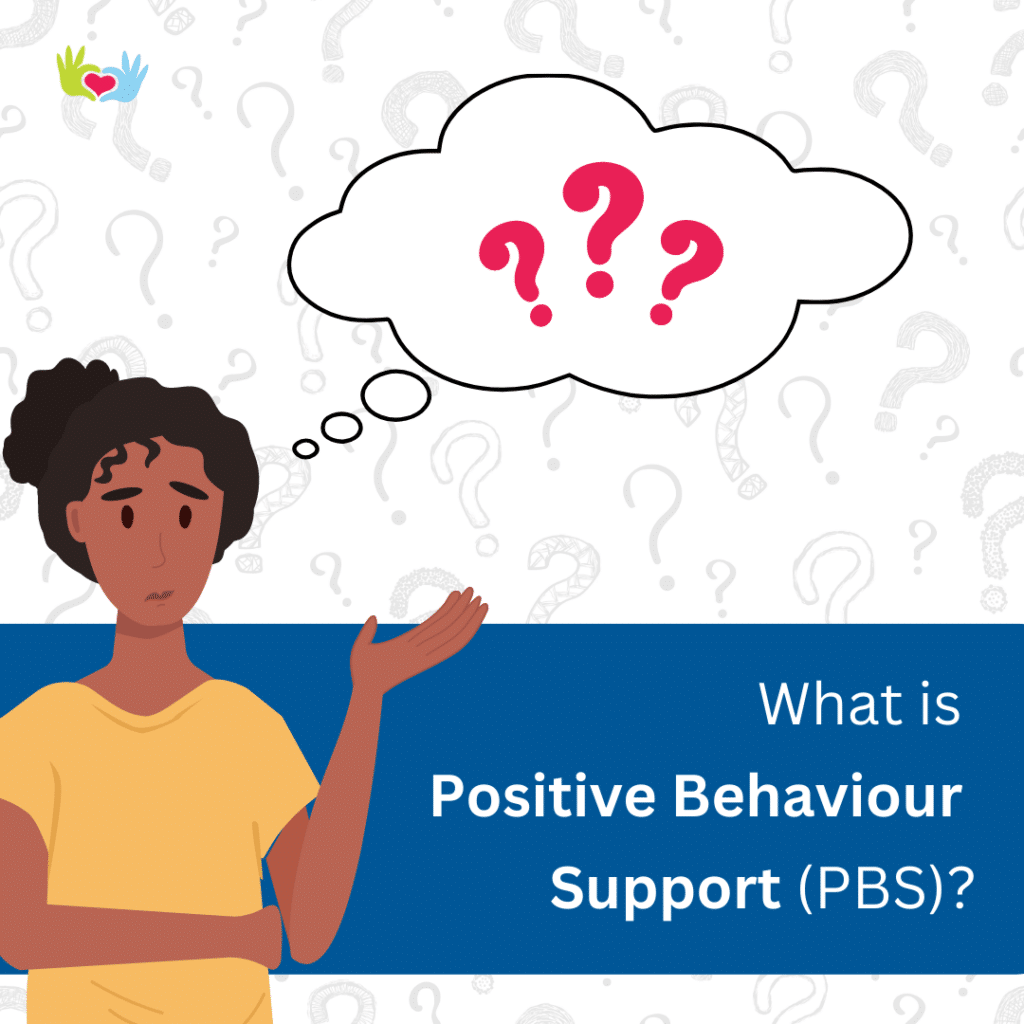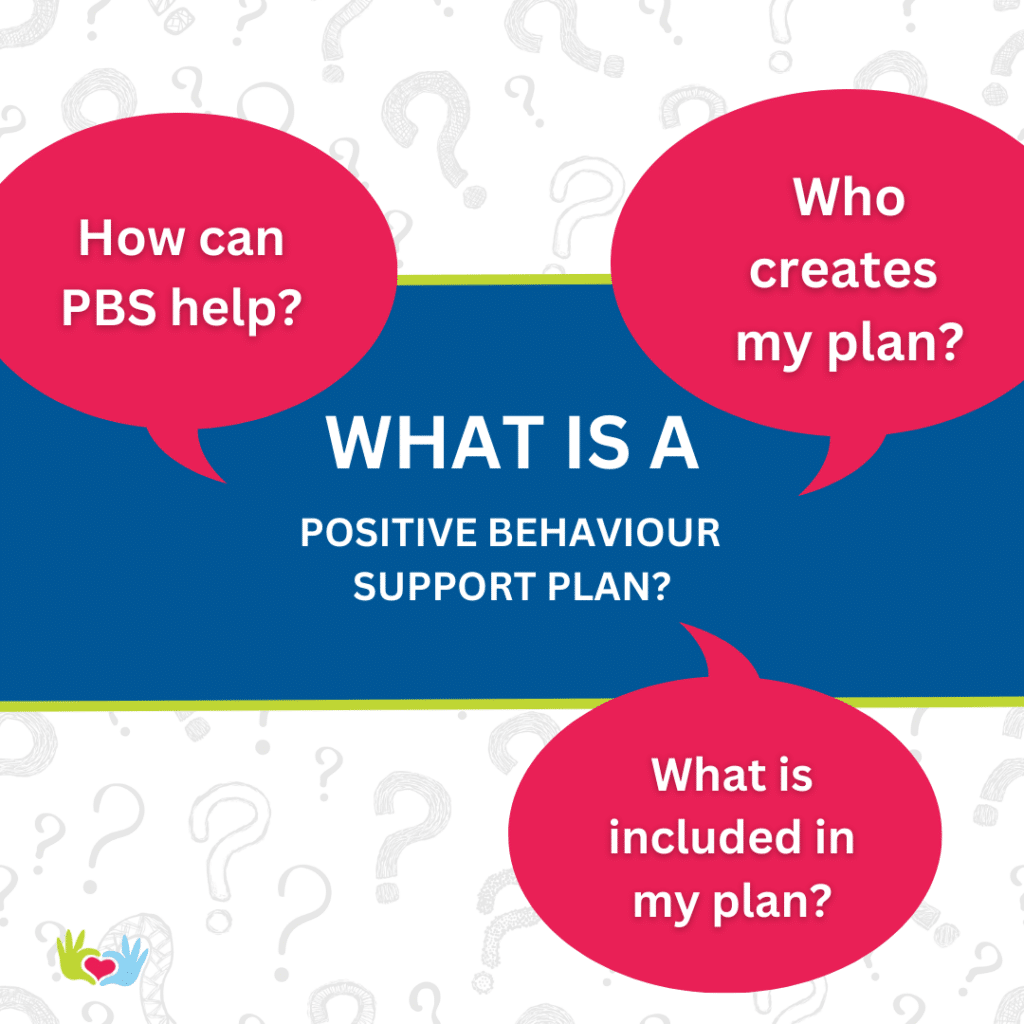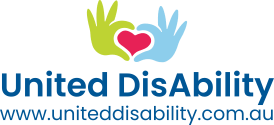Positive Behaviour Support, or PBS, is an approach that uses person-centred strategies for managing and providing support for behaviours of concern. This framework offers evidence-based support for people with complex behaviours and their families with the aim of minimising the need for restrictive practices. PBS is a scientific approach aiming to improve the quality of life for people with disabilities by protecting their individual rights and promoting positive interactions and learning. At UDC, our Behaviour Support Practitioners believe in a person-led and holistic approach, that aids the people we support to live their lives in the best possible way. The first step our Practitioners take is assessing the needs of each individual to enable tailored support for complex behaviours. This includes finding out triggers for specific behaviours, working to encourage positive behaviours, and developing strategies for preventing and managing challenging behaviours. To simplify, Positive Behaviour Support aims to develop tools for each individual, their families and carers that are needed to manage challenging situations in a positive way.

What is challenging behaviour?
Challenging behaviour is behaviour that impacts a person’s quality of life and causes distress to the person or others around them. This can mean things that present a threat to the physical safety of the individual or others or cause challenges in social situations restricting the individual’s ability to participate in the community. In Positive Behaviour Support, these behaviours are recognised to occur for a specific reason. They could be linked to stress, past experiences, the environment, or other people. So, our PBS Practitioners ensure that people with a disability build tools to manage the challenging behaviours in a positive way. We want to assist the people we support to participate and build meaningful connections in the community.
NDIS funding for Behaviour Support
NDIS funding for Positive Behaviour Support is generally included in Capacity Building Supports under the Improved Relationships or Improved Daily Living sections. This funding usually relates to goals around improving emotional regulation, communication skills, behaviours and relationships. If funding for PBS is not included in your plan, you may be able to request a plan review. Usually, the NDIS requires evidence as to why Behaviour Support is needed. For example, restrictive practices may be in place or challenging behaviour is affecting the safety of the individual or others around them. It should be noted that all Behaviour Support Practitioners must also be registered with the NDIS Commission.

What is a Positive Behaviour Support Plan?
A Behaviour Support Plan is a written document that offers guidance for the management of complex behaviours. It is developed by consulting the person with a disability and their families and carers and depends on the complexity of needs of each individual. Behaviour Support Plans can only be developed by registered providers such as UDC’s Behaviour Support Practitioners. This plan will summarise the supports the person needs and offers instructions for prevention, management and response for challenging behaviours.
As Behaviour Support is tailored to each person’s needs, Behaviour Support Plans look different for everyone. There are a range of factors our Practitioners consider when developing these plans. For example, a Positive Behaviour Support Plan determines the reasons for challenging behaviours and focuses on reducing the need for restrictive practices. Generally, the plan also aims to develop skills and to educate the family and carers on how to better support the person with a disability. There are many individuals who may need a Behaviour Support Plan. For instance, people with mental health conditions, intellectual, developmental or cognitive disabilities may benefit from this type of support.
It is noteworthy, that a Positive Behaviour Support Plan should be regularly revised and improved over time. Our Practitioners will continuously assess the situations to ensure the people we support have the most suitable outcomes. If some aspects of your plan are not working, you can talk to us about making changes. After all, we want to make sure the quality of your life is improved with the implementation of PBS practices.
Examples of Positive Behaviour Support
As mentioned, PBS takes many forms due to the individualised, person-centred nature of the approach. But you may wonder, what does this look like in real life? For example, some individuals may be encouraged to break tasks down into smaller steps to avoid frustration. PBS strategies could also include providing positive reinforcement, monitoring progress and focusing on building skills. Different strategies are needed to support different individuals; one person may need two people to travel with them when in the car. Someone else could need more support in managing challenging behaviours in social situations, which could enable them to make more positive connections in the community. PBS can support a number of people with a disability to make constructive changes to their environment and to learn new skills which can further support positive behaviours.

Our Practitioners
The registered Positive Behaviour Support Practitioners at UDC work closely with the people we support and their families to develop solutions that improve their quality of life. If you or anyone you know are looking for assistance in Positive Behaviour Support, contact us here to make an enquiry or give us a call on 1800 454 850. We are here to help you to improve the quality of your life, support independence and to assist you in making positive changes to your lifestyle.












